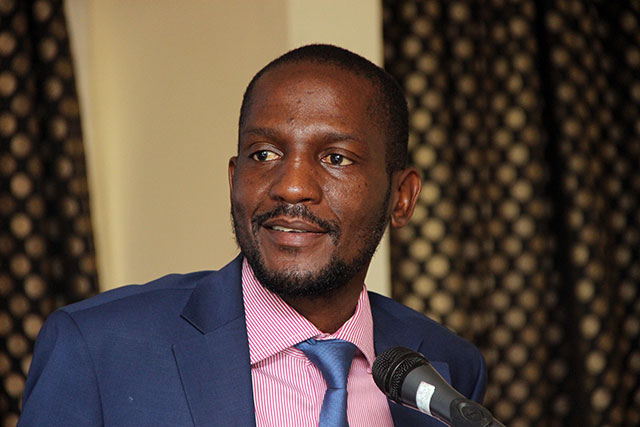Omanyano ovanhu koikundaneki yomalungula kashili paveta, Commisiner Sakaria takunghilile
Veronika Haulenga
Omanyano ovanhu koikundaneki yomalungula kashili paveta, Commisiner Sakaria takunghilile
Veronika Haulenga
Listeners:
Top listeners:
-
play_arrow
Omanyano ovanhu koikundaneki yomalungula kashili paveta, Commisiner Sakaria takunghilile Veronika Haulenga
Urgent reforms needed to address unemployment crisis. BUT is Namibia’s labour force competent enough?

It’s undeniably a crisis! Namibia is finding itself at a critical juncture as recent statistics from a survey conducted by the Economic Policy Research Association reveal the negative reality of the country’s job market. An alarming 56% of over 500 local businesses surveyed express difficulty in securing competent and skilled employees, with 30% describing the situation as “extremely difficult.” This data highlights the immediate need for Namibians to align their skills with global standards, which can be a deciding step in a local economy facing the challenges of both size and contraction.
The findings are integrated into the Private Sector Engagement Report, launched in August 2023. The objective of this comprehensive report is to stimulate meaningful dialogue between the private sector and the government, fostering an environment conducive to enhancing Namibia’s business landscape and promoting greater cooperation.
Despite these concerted efforts, Namibia’s 33rd independence anniversary was marred by discontent, especially among the youth, as the Namibian police employed a heavy-handed approach to put a stop to protests against escalating youth unemployment. The enforcement, citing the Public Gatherings Act of 1989, a law originating from the Apartheid era, has sparked concerns about the stifling of democratic expression.
Meanwhile, the issue of unemployment, a longstanding challenge, has intensified over the years, shattering the notion that a tertiary qualification guarantees employment. The National Employment Policy (NEP) of 2013, designed to create a significant number of additional jobs, faced challenges, as an independent evaluation in 2019 identified a “silo-mentality” within government operations and a lack of a central agency to guide and evaluate the policy’s implementation, which local labour expert Herbert Jauch agrees with.
In response to these pressing challenges, social and economic activist Michael Amushelelo is spearheading another national protest against unemployment. His criticism is aimed at the government’s alleged failure to implement Article 95 of the Namibian Constitution, which advocates for the welfare of all citizens, especially the unemployed.
In the meantime, President Hage Geingob has acknowledged the crisis, attributing the rise in unemployment to the success of post-independence education initiatives that have created a surplus of educated individuals competing for limited job opportunities. While the President calls for self-employment and urges a conducive environment for job creation, urgent and bold interventions are essential as Namibia grapples with forecasted unemployment rates of 20.95% in 2023.
The youth, activists, and concerned citizens are rallying for tangible solutions and a reevaluation of existing policies to bring about meaningful change in the face of this multifaceted unemployment challenge.
Meanwhile, the Africa Peer Review Mechanism report titled “Targeted Review on Youth Unemployment in Namibia” (2021) sheds light on the challenges in implementing youth programs. Namibia’s economic structure, uncoordinated policy frameworks, mismatched educational systems, and weak vocational skills development are identified as key constraints contributing to the youth unemployment crisis. The report notes that urgent reforms are imperative to address these structural and systemic issues and pave the way for a more robust and inclusive job market that can lead to systemic economic equality.
Written by: Tonata Kadhila
Africa Peer Review Mechanism Economic Policy Research Association Job Market Challenges Namibia Namibian Constitution National Employment Policy Private Sector Engagement Report Public Gatherings Act of 1989 systemic inequality Unemployment Crisis Youth Unemployment
Windhoek Weather
Most popular

Mbumba signs off new benefits for retired political office bearers

Former FNB employee arrested after defraud pensioner off N$215, 000

Namdia Heist: More questions, lots of confusion

Omuhwahwameki Michael okuunganeka oshikonga shoku patitha oostola dho Rani moshilongo ashihe.

Walvis Bay woman loses over N$777.000 to a fraudster
Copyright 2025 Future Media (Pty) Ltd | Website by Digital Platforms
Tel: +264 83 000 1000 | Email: news@futuremedia.com.na





